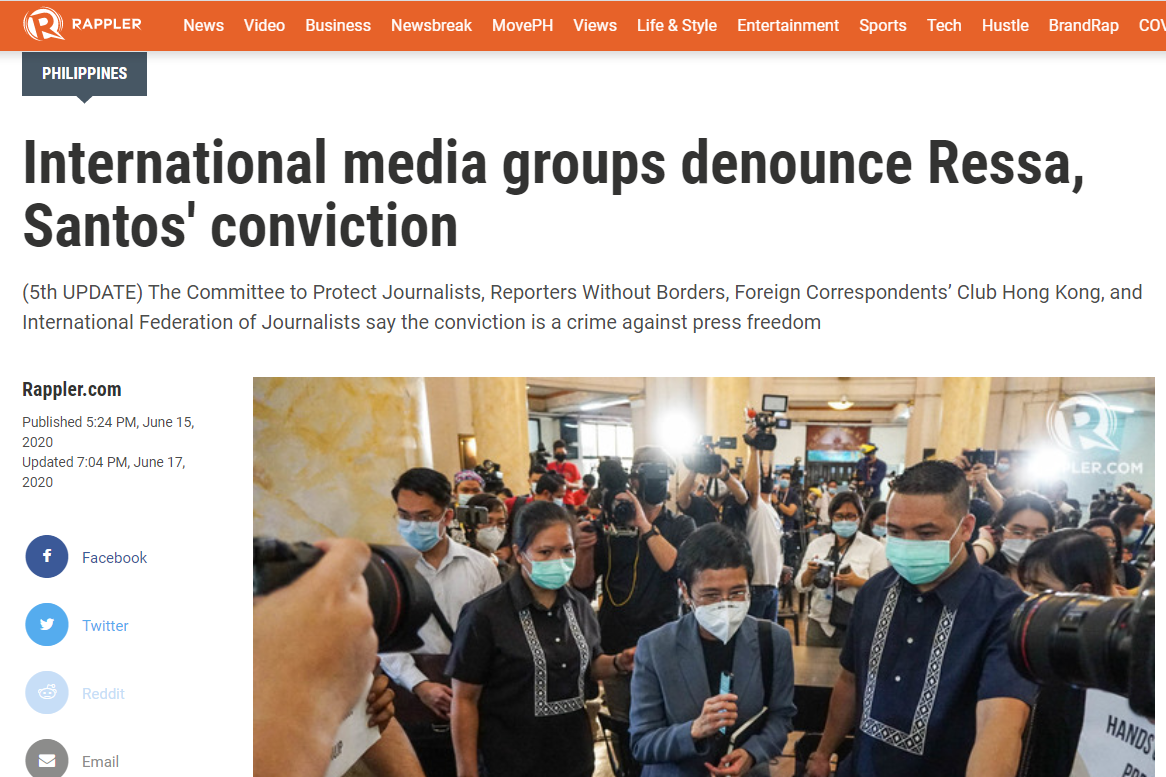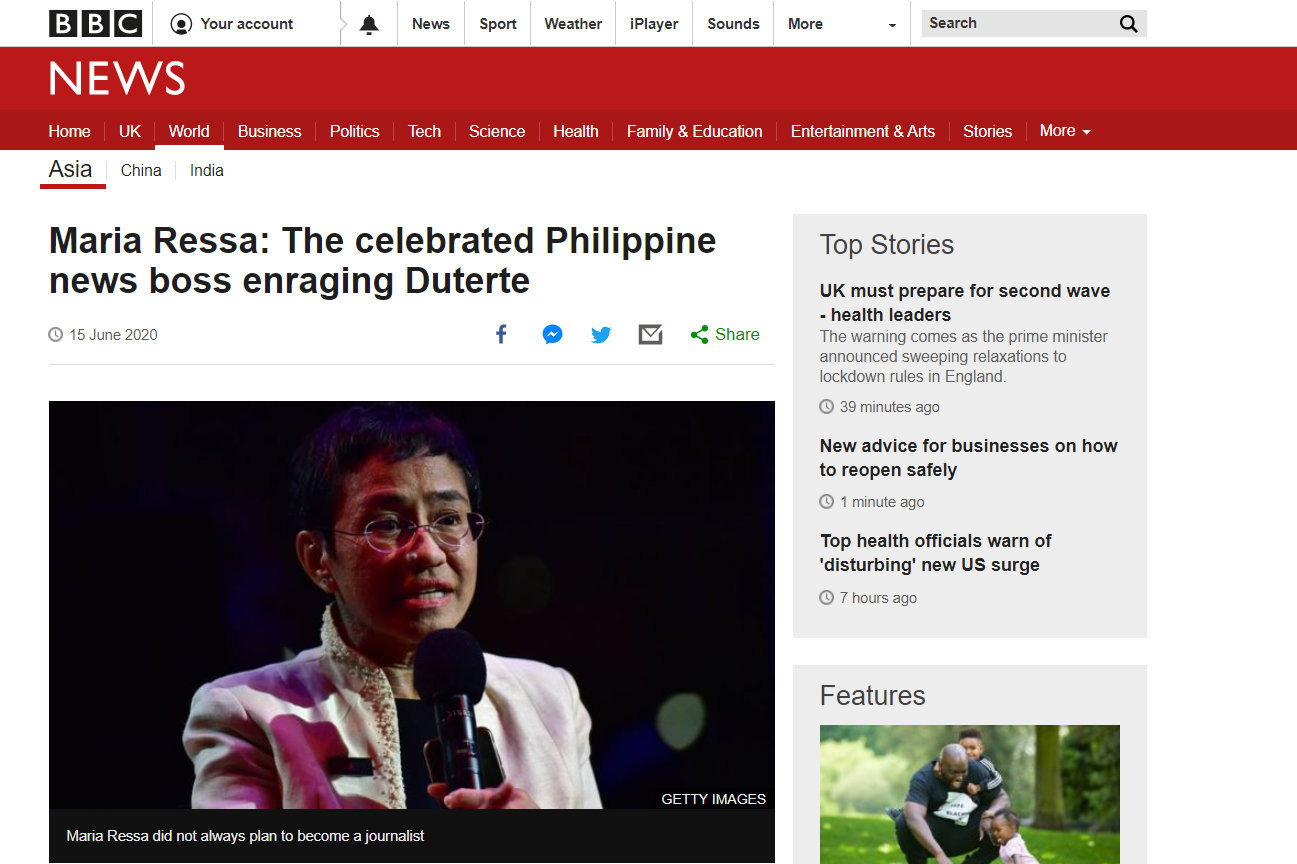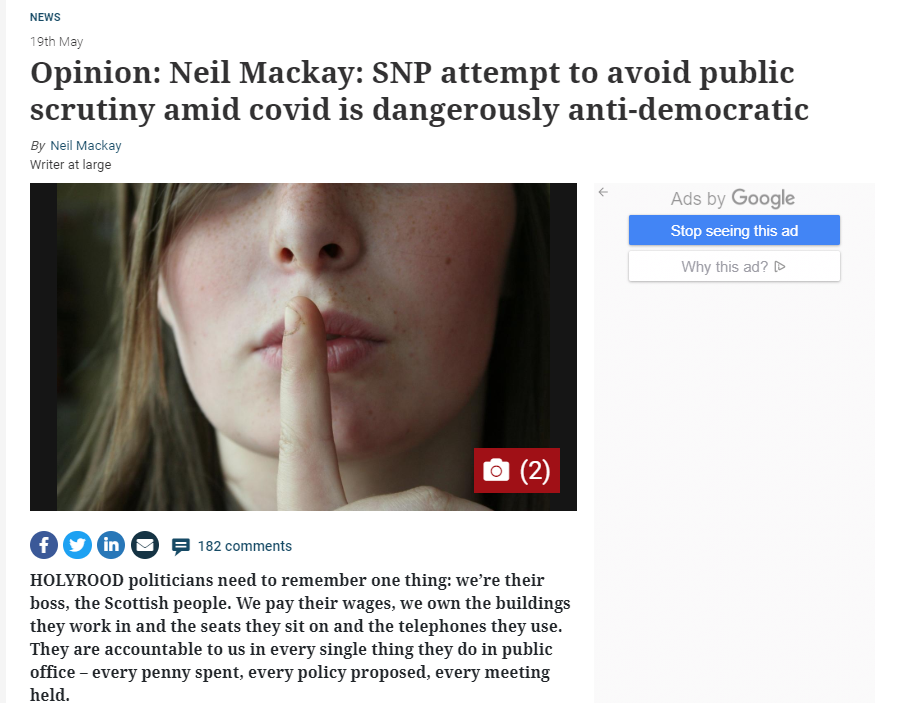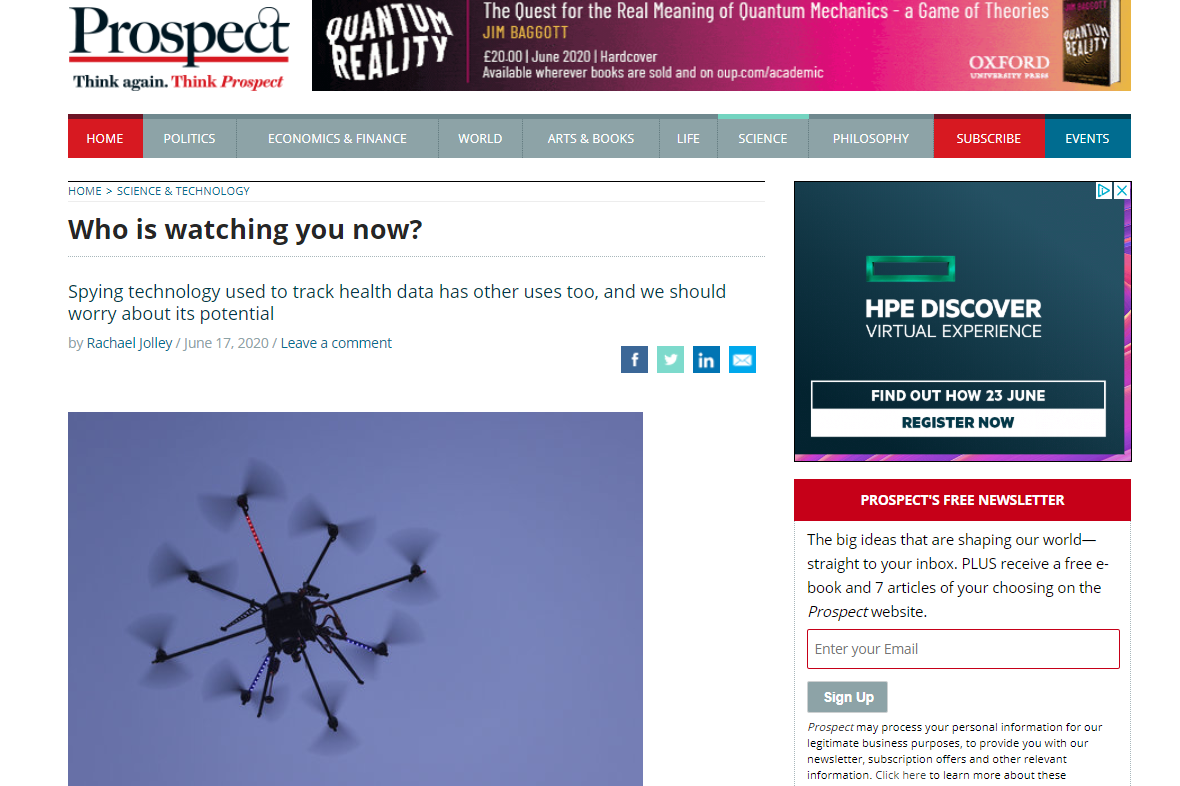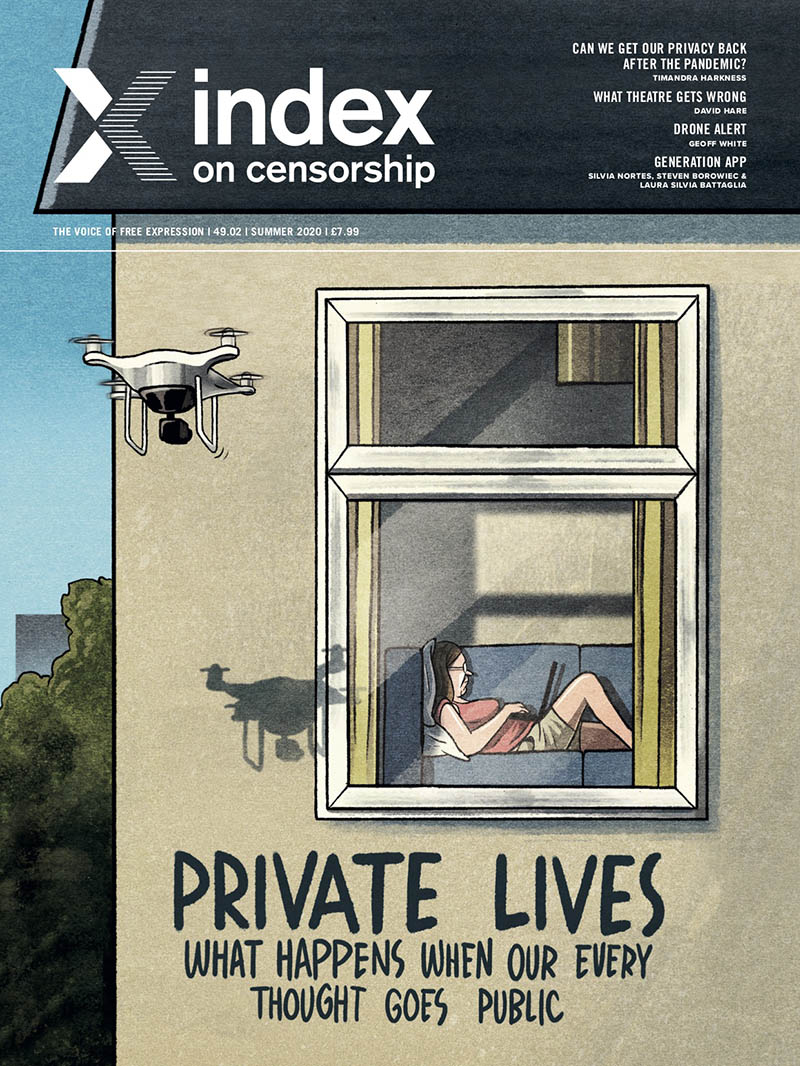Editor in chief Rachael Jolley is quoted in Rappler, an online news organisation based in the Philippines, discussing the recent sentencing of Rappler CEO Maria Ressa to up to six years in prison
Index on Censorship

Maria Ressa: The celebrated Philippine news boss enraging Duterte (BBC News)
Rachael Jolley, editor in chief of Index on Censorship magazine, speaks to BBC News about CEO of Rappler Maria Ressa’s recent sentencing to up to six years in prison
How big tech is enabling Chinese censorship around the world (The Telegraph)
Index on Censorship’s Jemimah Steinfeld speaks to The Telegraph about how technology is allowing China to impose censorship further and further afield
The Londoner: Corbyn critic Ruth Smeeth is freedom of speech CEO (Evening Standard)
New CEO of Index on Censorship Ruth Smeeth talks to the Evening Standard about the importance of free speech
Ruth Smeeth (The Political Party podcast)
Ruth Smeeth, CEO of Index on Censorship, speaks to Matt Forde on his podcast The Political Party about the history of Index, how her experiences will inform her leadership of the organisation, and why its work is so vital
SNP attempt to avoid public scrutiny amid covid is dangerously anti-democratic (The Herald)
Index on Censorship is quoted as Neil Mackay of The Herald reports on the Scottish authorities’ delayed response to freedom of information requests
Who is watching you now? (Prospect)
Index on Censorship’s Rachael Jolley writes in Prospect on the increasing use of surveillance technology in the Covid-19 era and the implications for the future
Editor’s letter: A question of trust
Why don’t we learn that censorship and lack of trust in society puts us all at risk, particularly in times of crisis, asks Rachael Jolley in the summer 2020 issue of Index on Censorship magazine
Podcast: Private lives with Katherine Parkinson, Harry Peacock, Arturo di Corinto and Emma Briant
The spring 2020 Index on Censorship magazine podcast with Mary Ellen Klas, Moa Petersén and Noelle Mateer discusses surveillance in China, the Swedish trend to put microchips under the skin and the worsening media environment in the USA as a result of coronavirus
Contents – Private lives: What happens when our every thought goes public
The summer 2020 issue of the magazine looks at the different ways in which we are giving away our privacy as we try to tackle Covid-19
Private lives
ust how much of our privacy might we give away – accidentally, on purpose or through force – in the battle against Covid-19? This is the question we pose in the Index on Censorship summer 2020 magazine. Tech journalist Geoff White looks at how drones are hovering overhead around the world, from China to the UK, to make sure we are abiding by quarantine and physical distancing. Just how up close and personal can they get? Less technical but just as sinister, Issa Sikiti da Silva reports from Uganda on government spies that are doing the same job as the drones, only they seem to be targeting political opposition. Meanwhile, people around the world are being encouraged to download contact tracing apps. That might be ok when the app has safeguarded privacy, but more often than not what is happening to data is not being spelt out, something Indian journalists are worried about in terms of their safety and that of their contacts, as Indian journalist Somak Ghoshal writes. And in the case of Colombia, Stephen Woodman highlights that the apps are easy for hackers to access. But when we’re in the home things don’t seem much better, as Adam Aiken argues in his article looking at the privacy issues that blight Zoom.
Index on Censorship announces Ruth Smeeth as new chief executive
Index on Censorship has today (Monday 15th June) announced the appointment of Ruth Smeeth as the organisation’s new chief executive. Ruth Smeeth...

